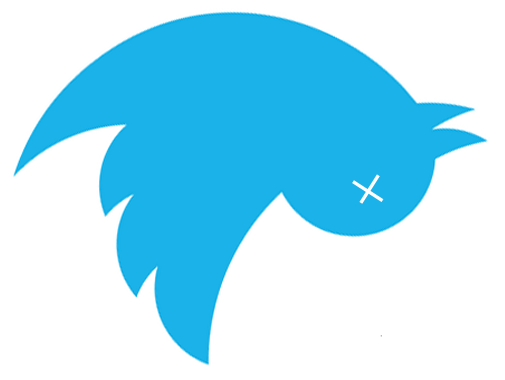
Just Say No to Content Mills
February 20, 2019
$4 A Word and Thoughts About Your Worth as a Writer
June 18, 2019But when change happens, it still takes time to adjust – even when it’s good change.
Take, for example, changes that happen in a business.
You may need to raise your service rates or the cost of your product. Or, your business may have been acquired by another business. Or, you may be phasing out another product or service.
Lately, I came across the following three emails from companies announcing changes. I found issues with the tone of these emails and how I was addressed as a customer.
Email #1: On second thought…
I use this app for my invoicing and contracts, and it had been acquired by a larger company a while ago. They were very excited about the acquisition because they touted this app to be “free forever” because of the merger.
OK, cool. Strange, but cool.
Fast forward to about a month ago, I get this email. It is so cheery sounding and self-congratulatory. I’m grateful for all the enhancements and upgrades, but apparently, that’s the motivation or reasoning for the change:
This app is no longer free.
And if you look at the thread of comments under there, you’ll see how people feel about this change – not very happy!
To go from “free forever” to $18/month is not the kind of change that people will handle well – especially as freelancers. It’s a big jump in pricing!
In retrospect, I would say that a merger making things “free forever” is highly suspect. But either way, this company went back on their word. And they didn’t address these complaints on Twitter. They only wrote back to one person who was happy about this.
Everyone else is pissed, including me.
To be excited about making more money from your customers is not something your customer wants to hear about. They want to hear about what’s in it for them.
Tone matters because trust is easily broken.
It feels like a betrayal, to be honest. I found this app through the Freelancers Union. It just seems like they marketed this to be free for a while so they could get a lot of people that they could charge later. It looks and feels duplicitous. That may not be their true intentions, but that’s how I feel, and probably how others feel, too.
On top of that, the free plan limits you to one client, and they call the customers of this plan “casual users.” Not only does that delegitimize that freelancer and their business (It’s just casual, nothing serious!), it’s not something you should say to your audience about your audience! That’s internal language, which I would still say should be struck, even internally. Customers or clients, in my opinion, is what you should use.
These changes are happening in about a couple of weeks and they gave about six weeks notice. For such a wide-sweeping change for an app people will use as an integral part of their business, that isn’t that much time. I’d give at least two months or more. That’s a huge jump in price and a huge drop in product usability and accessibility for the customer.
As a current customer, I get some discount for the pro plan, but I’ll probably be looking at some other app for my business needs.
Interestingly, I got a follow-up email asking me how I was doing with these changes about two weeks ago. It was just as cheery (it started with “Hiya!”) and I probably won’t respond. But what should have been the meat of the first email was a P.S. in this check-in email.
P.S. In case you missed it here’s a quick recap of the changes: We decided to introduce a new paid plan. As part of the launch we made the tough decision to limit the free plan to one active client. The change helps us to invest into the product for the long-term.
The language is still a little clunky, but I believe the company understood that this wasn’t being accepted as a happy shiny great thing for their customers. People get really serious when it comes to money and contracts, and the chipper tone, except for this P.S., was really grating.
Email #2 Happy merger times!
An email I received about a platform I used was about its acquisition (from the same company that owns the app above). Yippee skippee!
Here was the header of the email (I’m withholding names):
Special Announcement: [Writing Platform] is joining the [Big Ole Company] family!
Now this is on the heels of the mess with the app in email #1, so I am actually not happy with exclamation points. I’m more seasoned now! I know this could mean this platform may up their fees (which they take out of my pay).
They said they they were “thrilled” about this acquisition. Well, I’m not “thrilled” – I’m “concerned” that things are going to change, no matter what assurances are given.
So what happens now?
To their credit, although the tone was still a bit rah-rah for me, they did try to address some questions their customers may have such as, what happens now?
They basically want to keep what they’re doing and hope that this bigger company can help them do it better. But there was some cagey language about what will happen to their team and the autonomy of their product: “in the near term”. And that makes sense because…
Things change with mergers and acquisitions.
We’ve seen that with WhatsApp and Instagram, when acquired by Facebook. We’ve seen that with my beloved TweetDeck, when acquired by Twitter.
This change isn’t as personally impactful yet, but I was just feeling sore after email #1.
Email #3 A product goes bye-bye
This one is from Google, and I don’t care to be secretive about this one. Google can take the punching up here. AND it’s an email that you probably received if you have a gmail account.
The email started like this:
You’ve received this email because you have a consumer (personal) Google+ account or you manage a Google+ page.
I received this on February 1st, and what was annoying me here was the word “consumer”, as if I bought something from Google. I had not.
Just like the term “casual user” from email #1, “consumer” sounded very impersonal, like I was looking at internal language.
I would have even been OK with the term “user”, but “consumer” felt like I was draining Google of something. And hey, those could be my own sensitivities and issues, but with my editor’s eye, I thought the word choice was poor and unnecessary.
Everyone has been anticipating Google+’s demise for years (and lamenting the loss of Google Reader, but that’s another story). But it just gave me the creepy-crawlies because I saw how Google saw me – not very affectionately.
But it did warm up at the end:
From all of us on the Google+ team, thank you for making Google+ such a special place. We are grateful for the talented group of artists, community builders, and thought leaders who made Google+ their home. It would not have been the same without your passion and dedication.
I wish the writer weaved this warmth throughout the email. Although the first two emails felt overly familiar, this last email read like a technical writer wrote it – very factual and unemotional.
Properly Prepare Your Audience for Change
Change is unavoidable in life and most of us hate it, even when we want or initiate the change. As a business, you have a relationship with your clients and customers, one that should be based on respect and trust. And, with whatever changes are coming, you want to help maintain that trust.
If you have a big change coming, here are some idea on how to communicate that without sounding out of touch.
- Think about how your audience will react and keep it in mind as you write. You may be thrilled, but how do you think your audience will feel? Think about when you’ve gone through a similar situation as a client. Maybe you’ve experienced increased prices on a service, or the company eliminated the service altogether. How was that communicated to you?
- Let someone else read what you’ve written. In your head, you may think this all sounds great, but try letting someone who isn’t in your industry or position read your email or blog post. Getting another POV can help you watch your tone.
- Anticipate questions and anxiety. When change happens, there are nervous and unsure people, wanting to keep things the same. And sometimes you just can’t assure that. So head those questions off at the pass. Imagine what questions may come up for your customers and then answer them in your email or post. Respond to those feeling upset or betrayed. They’ve been your cheerleaders for your business, and you may lose some due to how you respond. And if those relationships do end, you don’t want them to end on a sour note.
- Be honest and transparent as possible. No one wants to know the granular details of your business’ day-to-day. But it’s important to be honest about your decision making. Why are your rates going up? Why are you canceling the service? Why is your business merging or being acquired? You can answer each question in just one sentence.
Do you have a challenging message or a big business change announcement that you need to deliver to your audience? I can help you craft it so your audience feels appreciated and seen. Check out my services page and then let’s schedule a time to talk today.



